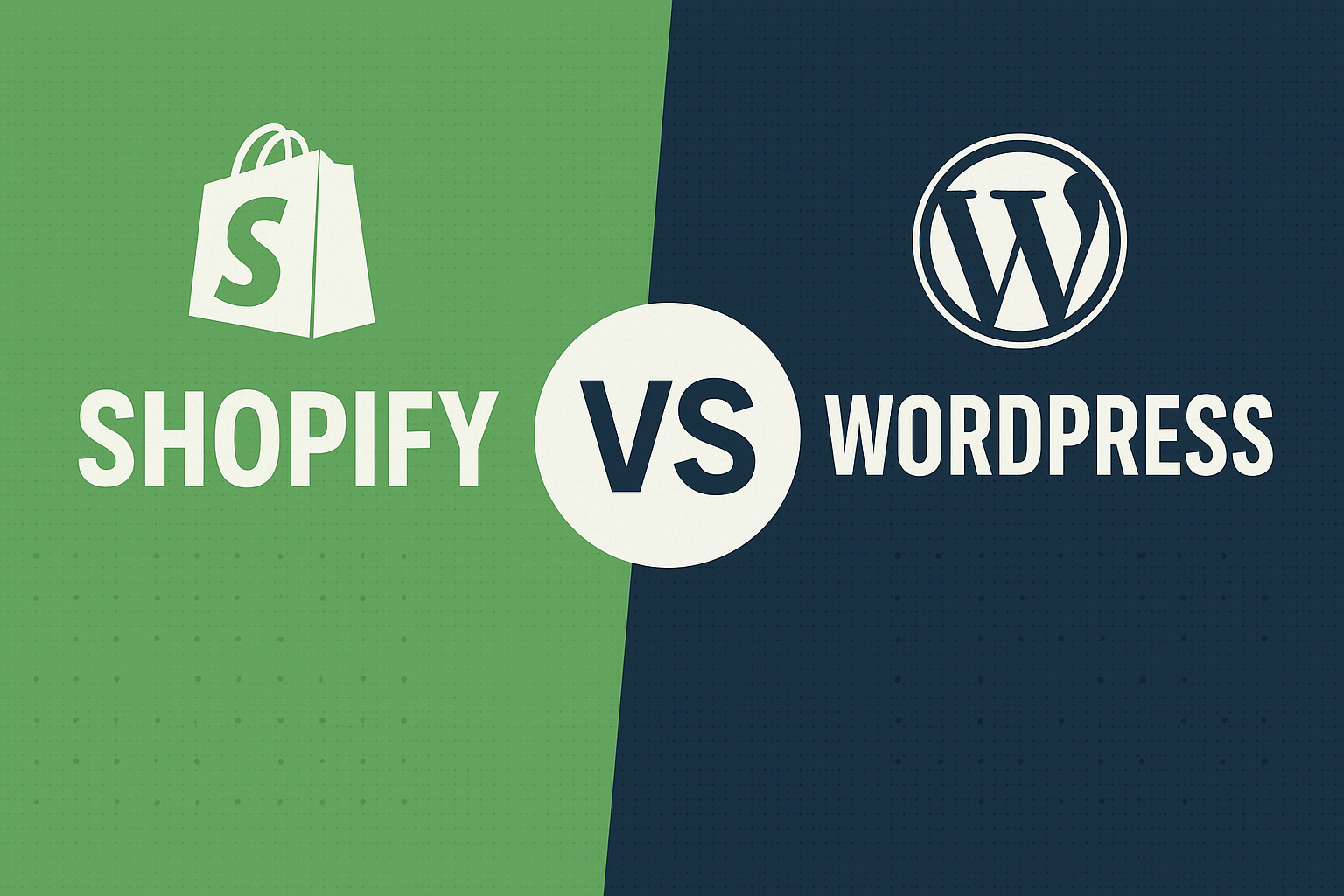

Setting up an online store? Initial decision-making will focus on the best platform to pick. A heated discussion of Shopify vs. WordPress is trademarked in the minds of all e-commerce entrepreneurs. While ease of use, design flexibility, and pricing options are some of the factors that affect selection, what works best for your business?
Shopify is that one-stop hosted e-commerce platform in the sense that it provides almost everything storefront, payment processor, freight forwarder, and really robust marketing tools to someone considering a pre-packaged solution. The setup is straightforward, with a centralized dashboard that makes even the running of a store very easy for a beginner.
WordPress, on the other hand, is an open-source content management system that requires the adoption of a plugin such as the popular WooCommerce before it can go into e-commerce mode. It is the most customizable software out there and, most likely, the best bet for those who want to control every single design element, feature, and integration.
In the end, the argument comes down to Shopify vs. WordPress in that it is about convenience versus flexibility-how much work would you be willing to do on your own?
To decide, evaluate what your business truly needs:
| Feature | Shopify | WordPress |
| Setup Time | Quick | Moderate to long |
| Ease of Use | Very user-friendly | Requires some tech knowledge |
| Customisation | Limited but polished | Extensive, but can be complex |
| SEO | Built-in tools | Full control via plugins |
| Hosting | Included | Must arrange separately |
| E-commerce Tools | Native and integrated | Plugin-based (e.g. WooCommerce) |
The dashboard is perhaps the largest point that sets Shopify leagues apart; everything from product management to analytics lives in one interface.
At Hashtag Orange, we help our clients set up functioning Shopify online stores; with brand vision alignment, fast turnaround, and efficient execution. After several years of experience in Shopify e-commerce features, we at HO empower businesses to scale with ease.
WordPress customization is never limited to changing a few things; store owners have total freedom to change any aspect of their onine shops. Most brands build from the thousands of themes and plugins available to customize user experiences. Of the leading plugins in WordPress e-commerce, WooCommerce allows store owners to set up make stores with different product types, shipping logic, and payment options.
Of course, for businesses that would like to have great customization capabilities, WordPress will suit them well. But, it often turns out to be expensive because it requires developers and consultants, while Shopify is plug-and-play.
Shopify themes, in fact, outshine WordPress entirely as far as cleanliness and out-of-the-box performance optimization go. While there are a lot of themes on WordPress, the quality is uneven, and many will require tweaking by users.
User experience comparison:
Shopify: Clean and easy navigation, responsive across devices
WordPress: Plenty of breathing space for creativity though considerably more effort is involved.
Hashtag Orange ensures an easy-to-consume experience for end-users through the design of intuitive layouts, fast-loading pages, and responsive mobile design-inarguably mostly on Shopify, because even that has built-in tools that literally make this happen faster.
Search engine presence can create or shatter an online store. Shopify and WordPress are great in the realm of SEO, but the similarities stop there.
Shopify SEO tooling is inbuilt and needs very little effort from you.
WordPress, through plugins like Yoast, provides far more advanced settings and flexibility. Still, when it’s too flexible, it becomes cumbersome. Hashtag Orange aids brands in implementing good SEO practices in Shopify stores without technical hassles, allowing them to secure greater rankings and conversions.
Apart from these two platforms, there are alternatives to Shopify like BigCommerce, Wix, and Squarespace. Elsewhere WordPress has Joomla, Drupal, and Magento as non-Shopify platforms.
But, scalability and easy ways are what set Shopify apart from the rest. For an online retailer-I mean very much at the start of his online venture- Shopivel isn’t an easy means to get convenience.
The answer to Shopify vs WordPress depends on your priorities. For those looking for simplicity and integrated features along with a fast time to market, Shopify is the choice. For those who want full control and creative freedom, a steep learning curve comes with the WordPress saddle.
Hashtag Orange favors Shopify for most e-commerce scenarios, especially when time, budget, and performance matter. Their Shopify specialists assist brands in building beautiful, fast, and functional stores—without the technical headaches.
So what have you chosen for your online business? Have you tried them both, and which worked best for you? Tell us in the comments!


